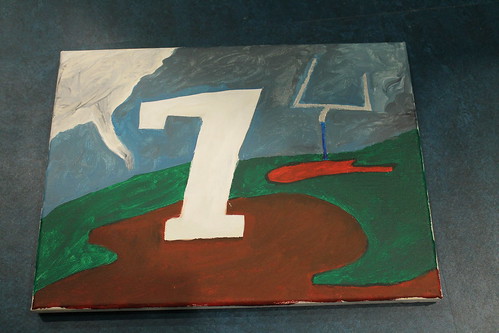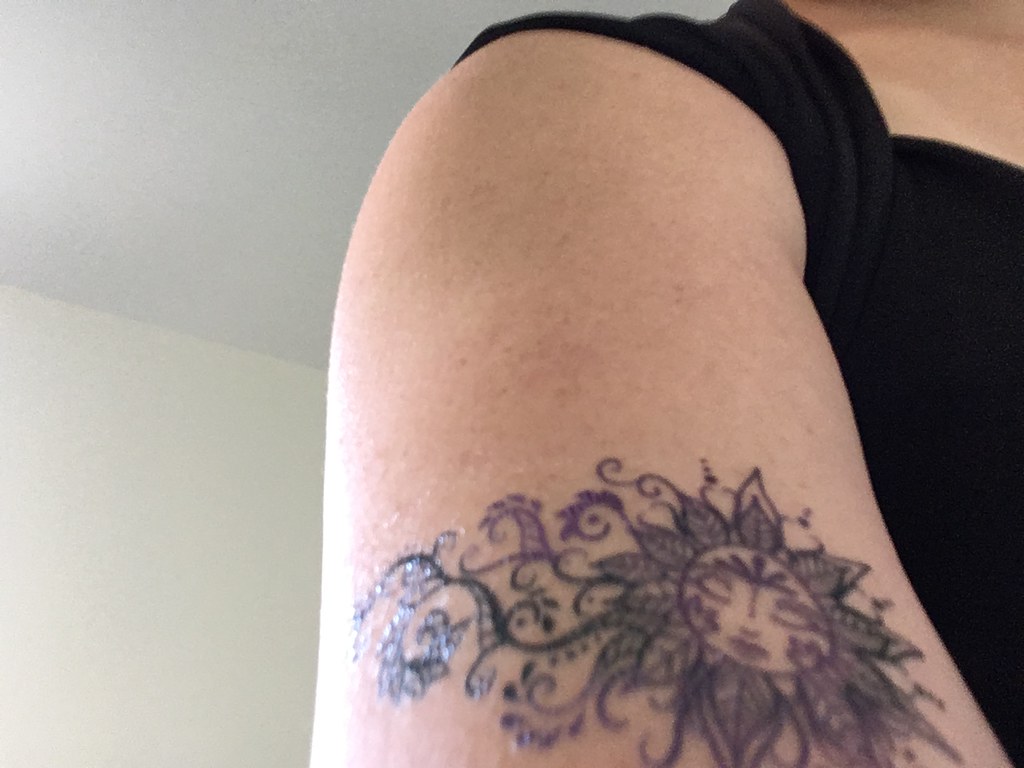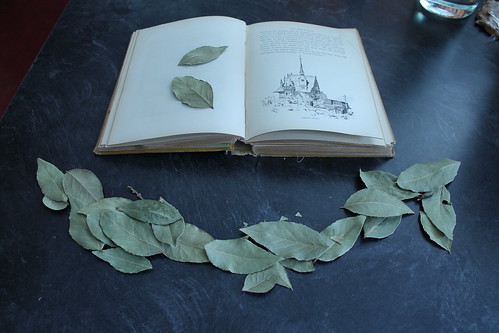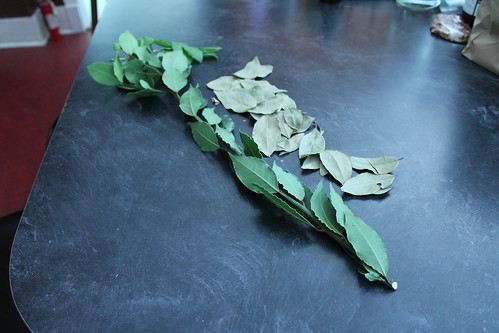In dreams and footnotes,
the ancestors’ ghosts —
mine, yours, theirs —
prod me with splinters
of broomsticks and music stands:
It was not easier, cleaner, sweeter
once upon a time. No no no.
Can’t sing if you’re dead, baby girl: look sharp,
speak low but speak up, and praise the moss on the trees.
Author: peg
Friable
My neighbor Ben’s been dead since spring,
his memory gone for longer, yet
his driver’s license sits in my car —
stuck, I think, to the base of my backpack
when I set it down on a postal counter
where someone — widow or executor — must’ve
left it behind, their own mind rocked
by too much grief-smog smothering the have-tos.
Once I thought I heard my mother calling
clear across a KMart, even though
I knew I’d left her dozing or dazed
on a couch at home — some semblance of resting
while I dealt with errands that could not wait
— and, truth be told, also some chores
that let me stay away from the house
a little while longer, to breathe off-script
away from the memories — never to line up,
hers against mine — of what should have been.
Or, let’s be precise, of what we wanted to insist
the memories should have been. I hear Ben sang
a lot of hymns in his time. My fault,
among my many others, not making time to hear
the singing, though I feel not guilt,
just sadness. Clutching and squeezing a watch
won’t make its face roll out any flatter
or wider. Time is not a piecrust one
can stretch or lattice into enoughness,
no matter how many badges one collects
for working instead of sleeping, for other
bargains with devils and demons. I shall
make time, this next new year,
to hold what sweetness it can, but also
let it crumble and flake, as it must,
like pastry and soil and other layers
from which good thoughts may somehow emerge.
Aubade (first draft)
I wear the sun on my arm to say
Nothing can be true or total all the time:
Ink blurs and bleeds, features fade,
and I have been called a thousand names
that weren’t my own, sometimes with malice
and often within a miasmatic memory’s
failure to ever-fix my mark among its grooves.
I shall not be greedy. Two hundred years hence
we all shall be writ in water and fire —
dead light lacing the streaks of diamonds
plummeting into planets no plutocrats can plunder.
What is a treasure no tyrant can touch
or tax — what shall we call currency
that cannot be spent or shared? Under my pillow,
I press my palm to a coin from Taiwan,
tracing not the actual engravings —
a dictator’s face, a palace-museum
I played within but have no precious
recollections to cherish, precise
or otherwise — I finger the metal,
trying to melt into sleep, the better
to stay alive and sane, the better
to be not constant nor correct for all time
but often enough — just often enough,
just enough, often just, often adjusting —
you see how it is? Let me not
to the marriage of minds
deny the truth of impediments:
I am no compass, but I am the moss
that glows jewel-green on even mundane days
and coats the trees on trails,
a mute map through midnights.
introducing Dawn McDuffie: “Where do you find these ideas?”
Dawn McDuffie is a wonderful woman whom I’ve had the good fortune to know since the mid-1990s; we met at a YMCA Writer’s Voice workshop in Detroit. For the past twenty years (!) or so, we’ve corresponded about applications, books, church life, dolls, eats, and a good many things beyond. This is her first post for Vary the Line; please check back each month for more insights from Dawn (and the rest of us).
Where do you find these ideas?
I spent an hour or so this afternoon watching a pair of monarch butterflies flit from yard to yard. The four households own tiny city lots, but the homeowners have stuffed them with flowers and tasty milkweed. It seems unfair that the grace of butterflies, the changing of colors as one perennial blooms and another dies back — that all these riches didn’t inspire a new poem, although I did write a haibun last year during a terrible drought. In the same way, the current political state has sparked a sense of dread, but has not given me any poems. I’m grateful that somewhere between pure beauty and total distress I find possibilities lining up, waiting to be written. Here’s the haibun from last summer’s heat wave:
Detroit, summer 2016
7:00 A.M. and it’s 80° in our back yard, a small space surrounded by a high fence, and most years, the green of shade and sun, regular rain. Tangerine day lilies, pink lilies, coral bells with their sparkle wands tolerate the dry part of summer, but none of our plants can stay healthy with no rain at all. Summer thunder storms have passed us by. I go to bed with a glass of water on the night stand, just in case I’m too thirsty to sleep. In the morning I pour what I didn’t finish into a black plastic watering can. Seedlings, I’m sharing my drink with you.
Thirsty hummingbirds,
I have watered the bee balm,
cool gifts quickly gone.
At Bay
The leaves my sister
told me to throw out
reminded me of books
I hadn’t read in years
but then I saw
that only the veins
matched the antique pages.
So much for spinning
some spiel about stories,
spices and sauces —
how almost everything fades,
dries out, flickers
into dirt and dustbins. Yet
to greet this morning
with such abundance —
how immense, how marvelous
to sit for a while
with obsolete leaves
and then to cast them
upon last year’s wreaths
decomposing
amid the scraps
of ordinary meals. What
a luxury, this space
to not need what’s at hand
and time to study it anyway —
a few final minutes
of not yet moving on.
again with “Still I Rise”
It’s not every morning that my tennis Twitter timeline greets me with multiple tweeps urging the world to listen to Serena Williams narrate a BBC montage with Angelou’s “Still I Rise” (a poem I posted about here back in December, that time because Twitter had let me know about Williams reciting it on receiving an award).
The BBC has been roundly criticized for its feeble and at times astounding gormless coverage of women’s tennis this past fortnight (h/t @MBDigital001). Here’s hoping that it does better going forward. While this clip neither mitigates nor addresses the deep-seated attitudes and assumptions undergirding the coverage issues, it was nonetheless lovely to glimpse hundreds of people thrilled and moved by this new rendition of an almost-forty-year-old poem — one barely older than the woman who today tied Steffi Graf’s record of 22 Slam singles titles, and then won doubles with her sister, both of them significantly older than the majority of other elite WTA players.
“What is a poem?” – index
April 4 – Lisa Dordal
April 6 – Joanne: What is a poem?
April 8 – Joannie Stangeland
April 11 – Dawn McDuffie
April 13 – Joanne: Power in that quiet space
April 15 – Pat Valdata
April 18 – Joanne’s Facebook friends
April 20 – Mary: You can lead a horse
April 22 – Jim Seavey
April 25 – Sherry Chandler
April 27 – Joanne quotes Rebecca Lindenberg and some other writers
April 29 – Peg: Running out of bras before knives
Running out of bras before knives
A poem
is a twenty-dollar bill
folded into
a bayonet
slipped behind
the bra without
a secret compartment
left beneath
a mattress in Prague
next to a crumpled napkin
formerly perched
on top of a tray,
a swan set next
to the butter that hasn’t
melted under my tongue
even as
I serenely slice
half-truths to be served
with dinner’s red-eye gravy.
– pld
Guest post: Jim Seavey
I’m tempted to offer the tautology that a poem is what a poet claims as a poem. One of my all time favorite poems is a “found object” poem by Charles Olson: “Barbara Ellis, ramp.” That’s it, the whole poem, taking up a whole 8 x 11 page in Maximus Poems IV, V, VI (Cape Goliard, London, 1968).
Jim Seavey is an artist and teacher in Nashville. View some of his creations at jimseavey.com.
Guest post: Dawn McDuffie
What is a poem?
Poetry is what in a poem makes you laugh, cry, prickle, be silent, makes your toenails twinkle, makes you want to do this or that or nothing, makes you know that you are alone and not alone in the unknown world, that your bliss and suffering is forever shared and forever all your own.
- — Dylan Thomas, A Few Words of a Kind
I wish I could define the quality that makes me realize I’ve just read a poem. Honestly, my mind doesn’t always know why, but my body always recognizes true poetry. I read a set of well-chosen words, and I feel I’ve been hit by verbal lightning. The hair on my arms stands straight up. Is it clarity, depth of image, language choices, or unity? A poem has all of those qualities, but a piece of persuasive writing could also claim identical poetic qualities. I’ve never memorized an essay for the joy of claiming it as my own, but I have memorized poems when I had no other way of holding them. I took a standardized test in third grade. What made the test special was that it included a complete poem with comprehension questions following. I sat there among my classmates, and I memorized that poem before the testing period was over. The following year we took the same test, and I checked to see if I remembered the poem correctly. I still know it by heart.
Snow Toward Evening
by Melville Cane
Suddenly the sky turned gray,
The day,
Which had been bitter and chill,
Grew soft and still.
Quietly
From some invisible blossoming tree
Millions of petals cool and white
Drifted and blew,
Lifted and flew,
Fell with the falling night.
I could say I was only eight years old, but I can’t deny its hold on me, sixty-two years later. A poem is a crafted collection of words that travels from one heart to another, a treasure that can last long after other collections of words have lost their charm.
Dawn McDuffie has an MFA from Vermont College and has taught creative writing at Detroit’s Scarab Club and Opera House. Her poems have appeared in Rattle, Driftwood, Diner, The MacGuffin, Feminist Studies, and the anthology Mona Poetica. An essay, “Humor in Poetry,” was nominated for a Pushcart Prize. Her books include People in My Head (1997 Heartlands Today Prize), Carmina Detroit, and Flag Day in Detroit. She taught high school English in Detroit for twenty-five years.




